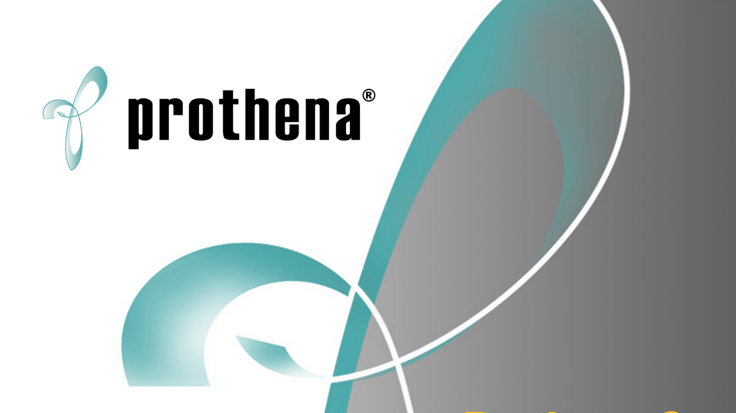
Prothena Corporation plc (NASDAQ:PRTA) is attracting a substantial amount of attention in the biotechnology space early this week on the back of news that the company has decided to discontinue one of its lead development programs. This is a major setback and, as might be expected, Prothena shares have taken a hit in line with the development.
So what happened?
Well, on Monday, the company reported that a phase 2 trial called Pronto did not meet its primary or secondary endpoints and, at the same time, reported that a phase 3 trial called Vital would be discontinued due to futility.
Both of these trials were set up to investigate the safety and efficacy of a drug called NEOD001, which Prothena was hoping could be an effective asset for the treatment of patients with AL amyloidosis. For anybody not familiar with this condition, AL is the most common type of amyloidosis and it generally affects the heart, kidneys, skin, nerves and liver. It used to be known as primary amyloidosis and it occurs when the bone marrow produces abnormal antibodies that can’t be broken down.
The idea behind this drug, then, NEOD001, was that it could target the amyloid that builds up in the above-mentioned organs and causes the damage associated with the condition. By targeting this amyloid buildup, the hope was that it could hold the progress (or even reverse the progress) of the condition.
Unfortunately, however, it just doesn’t seem to work.
As outlined above, the phase 2 trial failed to meet both its primary and secondary endpoints and the phase 3 trial has been discontinued to futility, which essentially means that even if the trial was left to run to completion, there would be no chance of it recording a statistically significant result.
So what comes next?
Well, this is where the uncertainty lies and entities in this uncertainty that the current sentiment surrounding this company is rooted. Basically, this is the asset on which Prothena rested for the vast majority of its market capitalization and, as might be expected, the discontinuation of a lead program generally (and has) translates (translated) to a considerable amount of weakness in share price.
At the close of play on Monday, Prothena went for around $11.50 a share – a close to 70% discount to the price at which the company traded ahead of the announcement hitting press. Early morning on Tuesday, Prothena shares have picked up a bit of a bounce and will open the session at $11.55, but there’s essentially no chance of a sustainable long-term recovery based on this asset given the latest news.
Another mover on Monday was Kamada Ltd. (NASDAQ:KMDA).
At market open yesterday, Kamada announced that it received feedback from the FDA regarding a phase 3 trial of what’s called Inhaled Alpha-1 Antitrypsin (AAT) therapy (Inhaled AAT) for treatment of a condition called Alpha-1 Antitrypsin Deficiency (AATD). AATD is a genetic disorder that may result in lung disease or liver disease. Onset of lung problems is typically between 20 and 50 years old and may (and in most cases does) result in shortness of breath, wheezing, or an increased risk of lung infections.
As per the report that hit press, the agency noted continued concerns and questions related to the safety profile of Inhaled AAT. Here’s a snippet from Monday’s press release:
Although the Company stated its intent to initiate the Phase 3 clinical study of Inhaled AAT for treatment of AATD in the second half of 2018, it will not be able to do so, until such time when communication with the FDA will be concluded to the FDA’s satisfaction, and the Company’s Investigational New Drug Application (IND) is approved. The Company cannot currently anticipate if and when these discussions with the FDA will materialize into an approved IND.
So, while it’s not as negative as the situation in which Prothena finds itself, the companies thrust into an uncertain situation with this announcement and markets have to wait to find out exactly how and when things will resolve going forward.
The company currently trades at $4.50 a share for a market capitalization of $118 million.
Enjoy this piece? Check out this one next: Here’s Why The Committee News Is So Important For GW Pharmaceuticals




